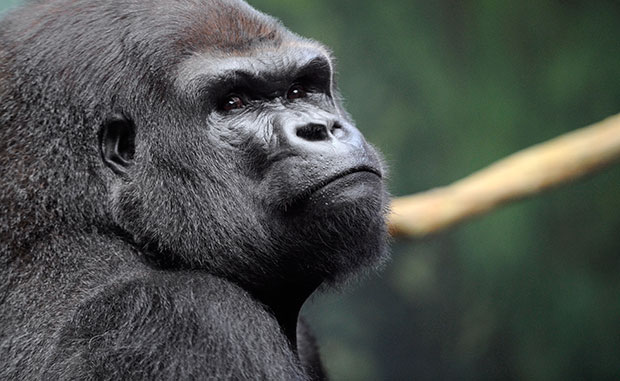When an old friend X came to dinner in London, I sampled what it must have been like during the American Civil War, when families were split asunder from aligning on opposite sides of the Mason-Dixon. Lo, this warm-hearted, well-read, intelligent Midwesterner is backing Donald Trump. This was my husband’s introduction to X, whose electoral preference clearly queered the first impression. Our threesome didn’t talk long on the matter. The disconnect being so absolute, there was little to say.
X is the only Trump supporter I wittingly know. But I was chilled by the difference between this and countless heated-but-civil suppers of yore, at which a dinner guest plumped rambunctiously for a candidate I opposed — Romney, McCain, even George W. The 2016 contest is drawing a hard line. Even for lesser-evil Democrats like me, Trump fans are self-exiled to another country, an effective Confederacy. As a friend at the Wall Street Journal just emailed with no intended hyperbole, Trumpsters tar themselves as ‘morally defective’.
I’m disturbed by how personal this election has become. Feelings run violent on both sides, and as in the Civil War there’s no safe middle ground. I feel a reservation about X now that I don’t want. No presidential campaign has ever strained my friendships. This election is ugly, and it’s going to get uglier.
When I threw out a challenge to my audience at the Canada Water library, I meant it as a cheap rhetorical flourish. I admitted to having no idea why quantitative easing — trillions conjured from thin air — has yet to power inflation. ‘So if any of you can explain it to me,’ I announced, ‘please see me in the signing queue.’ To my astonishment, while I was defacing my own books with misspelt dedications, a shy young man slipped me a scrawled sheet of A4. Behold, a cogent explanation: ‘Only 8 per cent of QE has been re-lent into the productive economy’. The rest has gone to hedge funds and investment banks, which have stuck the dosh into ‘property and luxury assets of all kinds — which is why we see massive inflation in these particular asset classes, but not for the rest of us’. Supposedly, audiences turn up at my talks to learn something. This time I did.
Although I’m no animal rights activist, the killing of a silverback gorilla because a boy had fallen into the ape’s Cincinnati zoo enclosure pained me. We’re meant to value our species above all others. So presumably it’s unacceptable for me to posit that maybe the gorilla should have been merely tranquillised, even at a risk to the boy. Yet scarcity affects value beyond economics. There are only about 1,000 mountain gorillas left, and 7.4 billion people. Profusion leads to an inevitable cheapening. Our vast, expanding population makes individuals seem more expendable. As a character in my fourth novel Game Control considers nostalgically — how refreshing it must have been, when a sighting of a member of your own species was rare.
Classic British farce: checking out at Tesco, only for the bill to tally about a quid shy of the £40 spend required to use this week’s £4 discount coupon. Holding up the queue, I streak off for cultured butter (£1.65). Befuddlingly, the bill is still 21p short. ‘Peanuts!’ I cry. The bemused cashier points to the snacks aisle. Value peanuts (49p) finally push me over the line. I’m usually good at this game, and I’d estimated the bill before checkout. On the receipt, two baffling reductions labelled ‘Tesco brand guarantee’ — £3.95, and 65p after the butter — had spannered my calculations.
Listen: last month, my Hay Festival driver and I discussed the plight of British dairy farmers, bullied by supermarkets to sell below cost, and suffering horrifyingly high suicide rates. We both yearn to pay more for milk, if only the money went to farmers. A proposal, then. Let Tesco offer a voluntary ‘dairy farmer guarantee’. Instead of saving that £3.95, you can donate it to the dairy providers, that they might not shoot themselves from despair. You’d have no problem using your coupon, and wouldn’t hold up the queue.
Apropos of Faisal Islam’s question to David Cameron on Sky about which came first, the Brexit recession or the third world war: I’m not surprised by Project Fear, because I witnessed the same sledgehammer-subtle propaganda 18 years ago. In the lead-up to Northern Ireland’s Good Friday Agreement referendum, the hectoring was relentless. You could vote for peace, stability, love, motherhood, happiness, kitty-cats, chocolate and Santa Claus, or for war, ugliness, division, hatred, murder and apocalypse. The condescension, the manipulation, the overkill — totally the same. It worked in Northern Ireland. Pleasingly, at least with Cameron’s audience last week, it backfired.







Comments